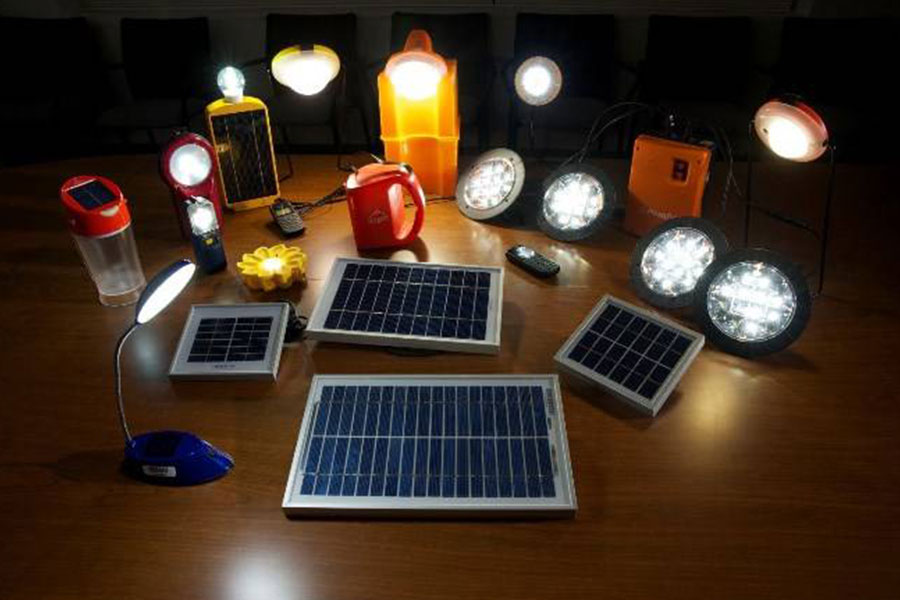
Fortune News | Apr 30,2022
Feb 6 , 2024
By AKSAH ITALO ( FORTUNE STAFF WRITER )
Ethiopia is revamping its intellectual property laws after three decades of operation through a bill drafted in partnership with the European Patent Office. The draft includes provisions for patents, utility models, and industrial designs, which take into account the originality and applicability of products while also suggesting detailed pre-grant procedures to check the validity of patent claims.
Supported by technical expertise from the European Patent Office(EPO), the two-year effort aims to lay the groundwork for comprehensive protection of innovations in Ethiopia as part of an attempt to address past challenges in applying and enforcing IP rights.
Ermias Yemanenbirhan (PhD), former director of the Authority and current State Minister for Justice, highlighted the pressing need to protect innovations that have at least been already identified during a discussion panel held at the Hilton Hotel.
"Intellectual property laws are more necessary than ever before," he said.
The state minister also emphasised the imperative for robust legal frameworks as Ethiopia navigates its involvement in the African Continental Free Trade Area (AfCFTA) and the World Trade Organization(WTO).
"There is a need for a harmonized patent regime," he told Fortune.
He suggested prior exploitation of Ethiopia's agricultural and traditional commodities by other countries due to a lack of awareness and expertise in intellectual property rights.
"Most of our traditional products have been expropriated," he said
Despite Ethiopia being the first country to domesticate teff across its highlands, a Dutch company, Health & Performance Food International, secured patent rights for the product in 2003.
The state minister indicated that IP rights served as a means for innovators to transform their products into commercially tradable assets, especially as the value of intangible assets increases worldwide.
The draft bill establishes principles applicable to patent rights procedures and remedies for enforcing those rights, as well as provisions for civil and administrative procedures for dispute settlements.
Ethiopia has registered a mere 658 patents ever since the establishment of the Authority 30 years ago, while countries like China have registered around 1.5 million in four decades.
Woldu Yimsel, head of the EIPA, emphasized the need for strong legal frameworks to guarantee creator's rights, particularly as Ethiopia seeks accession to the WTO and an ecosystem of innovators emerges.
"Its importance cannot be overstated," he told Fortune.
In the Global Innovation Index of 2022, Ethiopia ranked 117th among 132 economies, with Africa's share in the global number of patents standing at 0.5pc.
Nicholas Kornig, coordinator at the EPO and one of the contributors to the draft, suggested a reluctance of government agencies to enforce patents, copyrights, plant variety rights, and trademarks in Ethiopia compared to other countries.
"There is a lack of knowledge on the value of patents," he told Fortune.
Nicholas pointed out the role of patent rights in giving companies with intangible assets a competitive advantage in an increasingly globalized world as trade channels open up.
Nahim Ali, CEO of Bony Filter Material (BFM), a start-up specializing in water filters, fertilizers, and poultry feed chemicals derived from bone char, underscores the importance of intellectual property in supporting innovation.
BFM has not been able to secure a single patent for its products despite consistent appeals since its establishment two years ago with 150,000 Br paid-up capital.
"We have several ideas we want to work on, " Nahim told Fortune," but accessing finance without IP rights is nearly impossible".
Foziya Ali (PhD), State Minister for Innovation & Technology, acknowledged the shortcomings of the decades-old proclamation in aligning with emerging innovations and ideas.
"The legislation has been long overdue," she told Fortune.
The State Minister pointed to the compatibility of the pending ratification of Ethiopia's first start-up proclamation with the imperative to establish stronger IP rights in the country.
"It will make startups more financeable," she said.
According to the European Patent Office's 2023 report, start-ups are 2.5 times more likely to obtain seed funding after filing for a trademark and 2.9 times more likely to secure initial funding if they have filed for a patent.
Karemenz Kassaye, vice president of the 3,000-member-strong Ethiopian Youth Entrepreneurs Association (EYEA), recalls a professional life filled with continued struggles to register and finance new types of products.
"Lots of ideas have failed to commercialize because of weak IP rights," he passionately told Fortune.
The vice president suggested that difficulties in accessing credit have worsened for Ethiopian entrepreneurs as financial institutions don't place any monetary value on ideas.
"Some banks have actually requested for patents when we asked for loans," Kermenz said.
A Sub Stack report in 2023 indicated that Ethiopia managed to facilitate a mere six million dollars to startups during the same year that Kenya issued a staggering 1.16 billion dollars.
Tigist Dessu (PhD), an IP researcher in the School of Law at the University of South Africa, suggested that Ethiopia has been experiencing significant financial losses due to the country's inability to capitalize on innovation.
"The country has failed to protect the creative freedom of its innovators," she told Fortune.
Tigitst indicated that Ethiopia failed to be a signatory to the Paris Convention on Intellectual Property Rights and the Madrid Protocol primarily due to the absence of a strong domestic legal framework.
"The problem is not in innovation but protection in Ethiopia," she said.
Tigist argued that a strong legal foundation for intellectual property rights gives innovators an incentive to participate proactively in the creation of new ideas and companies, which become increasingly important as Ethiopia prepares to introduce capital markets.
PUBLISHED ON
Feb 06,2024 [ VOL
24 , NO
1240]

Fortune News | Apr 30,2022

Radar | Feb 09,2019

Radar | Nov 26,2022

Radar | Jul 13,2024

Radar | Oct 12,2024

Dec 22 , 2024 . By TIZITA SHEWAFERAW
Charged with transforming colossal state-owned enterprises into modern and competitiv...

Aug 18 , 2024 . By AKSAH ITALO
Although predictable Yonas Zerihun's job in the ride-hailing service is not immune to...

Jul 28 , 2024 . By TIZITA SHEWAFERAW
Unhabitual, perhaps too many, Samuel Gebreyohannes, 38, used to occasionally enjoy a couple of beers at breakfast. However, he recently swit...

Jul 13 , 2024 . By AKSAH ITALO
Investors who rely on tractors, trucks, and field vehicles for commuting, transporting commodities, and f...

Jun 28 , 2025
Meseret Damtie, the assertive auditor general, has never been shy about naming names...

Jun 21 , 2025
A well-worn adage says, “Budget is not destiny, but it is direction.” Examining t...

Jun 14 , 2025
Yet again, the Horn of Africa is bracing for trouble. A region already frayed by wars...

Jun 7 , 2025
Few promises shine brighter in Addis Abeba than the pledge of a roof for every family...